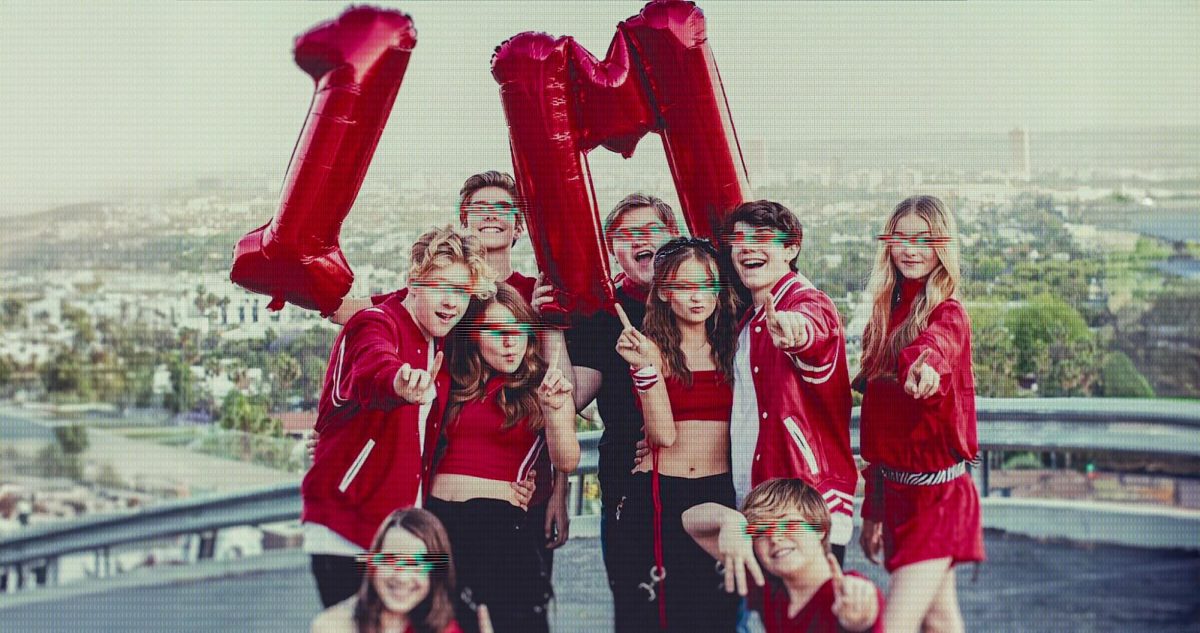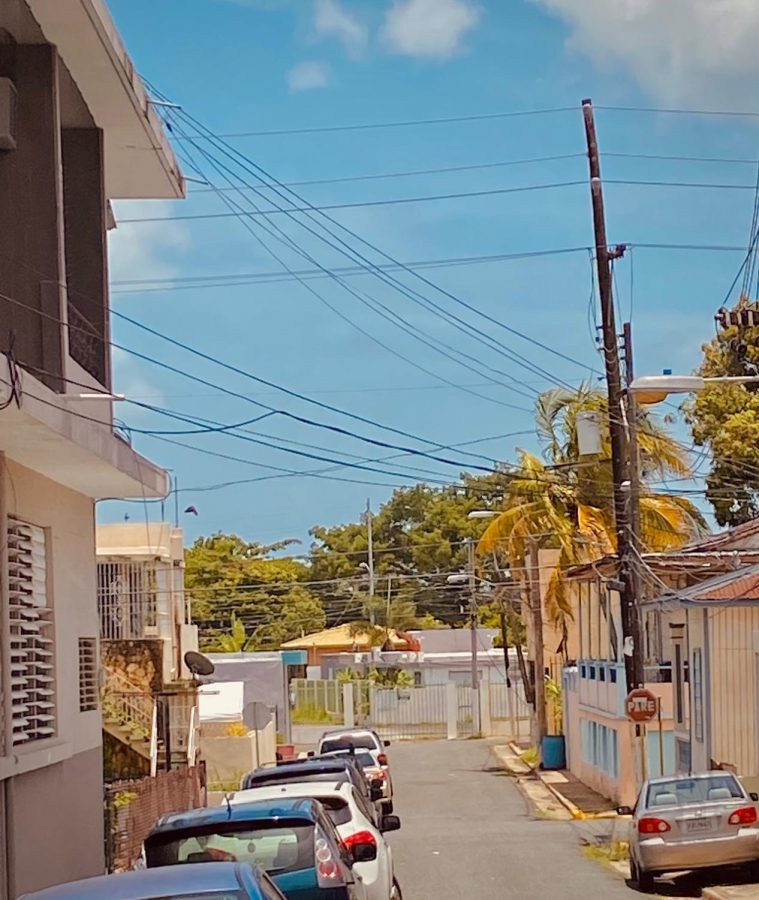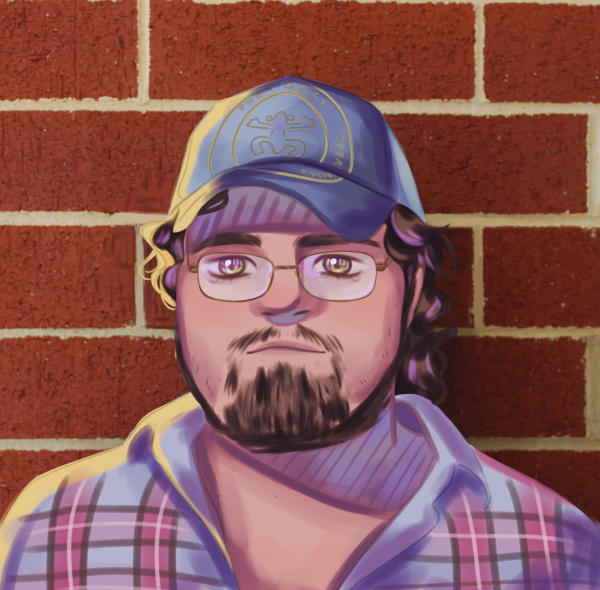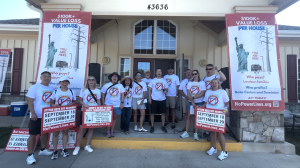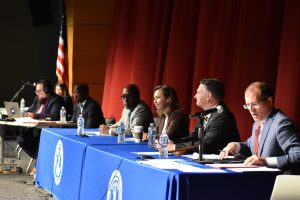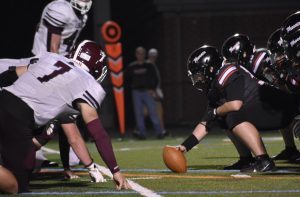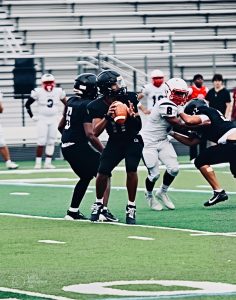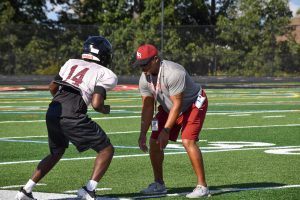The Debate over Puerto Rican Statehood Hides Bigger Concerns
From a small island in the Caribbean with a diverse culture and a big voice, the controversy over whether or not Puerto Rico should become a US state often reaches the mainland. But for a debate so grand, is it truly the most important issue on our hands? What exactly has been overlooked in Puerto Rico?
A street in the municipality of Mayagüez, Puerto Rico. Many of the roads in the island, especially in the rural areas, are usually left uneven and damaged.
February 2, 2022
In the middle of the Caribbean lies a 35 by 100 mile island called Puerto Rico, sometimes referred to by the locals with the indigenous name Boriken. Contrary to the small size of the island, it is known for its rich culture and history with the mixture of European, African, and native Taínos people. It also holds the title of the world’s oldest colony, first colonized by the Spanish in the 16th century, and later a colony of the US after the Spanish-American War in 1898. Although its official status is an “unincorporated territory,” many still refer to Puerto Rico as a US colony.
Recently, there has been a widespread debate about whether or not Puerto Rico should become a US state. However, the debate comes with its own problems. Perhaps it’s seen as too important, as if the solution would fix all sorts of issues — and that’s not something we should be viewing it as. By focusing on the debate for Puerto Rican statehood, we’re ignoring the louder calls for help by the Puerto Rican people.
The mid-20th century marked the beginning of the Puerto Rican independence movement. Founded in 1922, the Partido Nacionalista de Puerto Rico, or the Puerto Rico Nationalist Party, had been conceptualizing tactics that could be used against the US government. The leader of the party, Albizu Campos, was enraged by the racist stigmatization of Puerto Ricans as US officials had viewed them as “savages” according to Nelson A. Denis’ “War Against All Puerto Ricans: Revolution and Terror in America’s Colony.” In 1948, the US imposed Law 53, also known as the Gag Law, which made it a crime to be in possession of the Puerto Rican flag. This was an act of oppression against independence and Puerto Ricans themselves.
Despite Albizu’s attempts to revolt against the US government—which included attempted assassinations, powerful speeches, and uprisings in the cities—the movement failed due to the overwhelming forces of the US military. Albizu was later arrested in 1954, and was subjected to inhumane experiments such as being exposed to radiation, which Denis contends was most likely the main cause of his death in 1956.
Now, the US has been letting the voices of the island say whether or not they want independence through government polls. And even after the most recent poll, opinion on the issue is still mixed between statehood and independence. But should this really be the only debate that the US congress barely recognizes? Of course, it isn’t the only argument regarding Puerto Rico, but it seems that it’s on a pedestal of importance, as if the debate is perceived to be the fixer of all problems of the island. The debate of statehood has been more discussed than any other conflict regarding the island.
Sophomore Alisha Jenkins thinks many people don’t know about the debate for Puerto Rican statehood. “I don’t think it’d fix all problems, but I think it definitely narrows [the problems] down; they’d be able to come together with what they want to be or what they are. I do wish that the U.S. government [discussed this more].”
After Hurricane María slammed into Puerto Rico in 2017, the entire island was left without power. The storm was one of the most powerful to ever make landfall in Puerto Rico, and it devastated the island, leaving scars still felt today after four years. Despite former president Donald Trump’s claim that the aid to Puerto Rico was a success, many regard it as a failure because the effects of the hurricane are still seen today. Now, power outages are more common than ever, and they’ve only gotten worse ever since the electricity had been taken over by LUMA, the private company responsible for Puerto Rico’s electricity. Many were outraged when LUMA took over the island in June of 2021. Since then, protests have risen against LUMA’s decisions, which resulted in even more frequent power outages, even though they were promised better power.
More Puerto Ricans, especially the younger generations, are leaving Puerto Rico in search of more opportunities in the U.S. In fact, according to a brief story by USA Today, there are more Puerto Ricans who reside in the mainland than the island itself. Because the quality of education has been slowly declining, there are less job opportunities in Puerto Rico. It’s almost impossible to create a business because of the Jones Act the US implemented in 1920, which severely limited the supply of goods and increased cost.
Not only has the quality of life declined in recent years, but also political stability has given way to uncertainty due to the increasing protests against government corruption. In January of 2020, days after the major earthquakes shook the island, a Facebook livestream revealed a warehouse of unused aid supplies that were meant for the hurricane crisis in 2017. As a result, people took part in the massive protests calling for the resignation of governor Wanda Vázquez.
After all of the mess that has been swarming in the Caribbean, why hasn’t the conversation in the US mentioned much of these other issues? Although Puerto Ricans are classified as U.S. citizens, their voices are left mostly unheard, only to be met with the same old question: should Puerto Rico become a U.S. state? That question has shadowed most of the current issues Puerto Ricans face. And why should it? Why do most of us view the answer to be the one that fixes all issues, when in reality, neither will fix any issue? The debate, despite its importance, is not one that should be on this pedestal. Yes, Puerto Rican statehood should be considered, but there are far more pressing issues such as getting electricity to the people, political corruption, and current economic turmoil that need to be discussed and resolved.
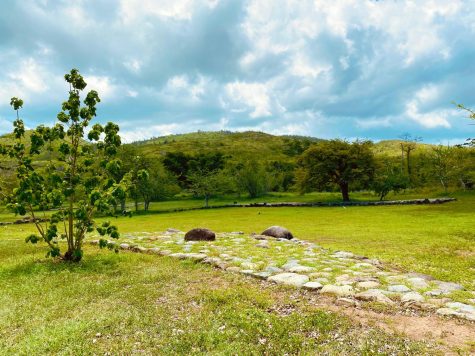




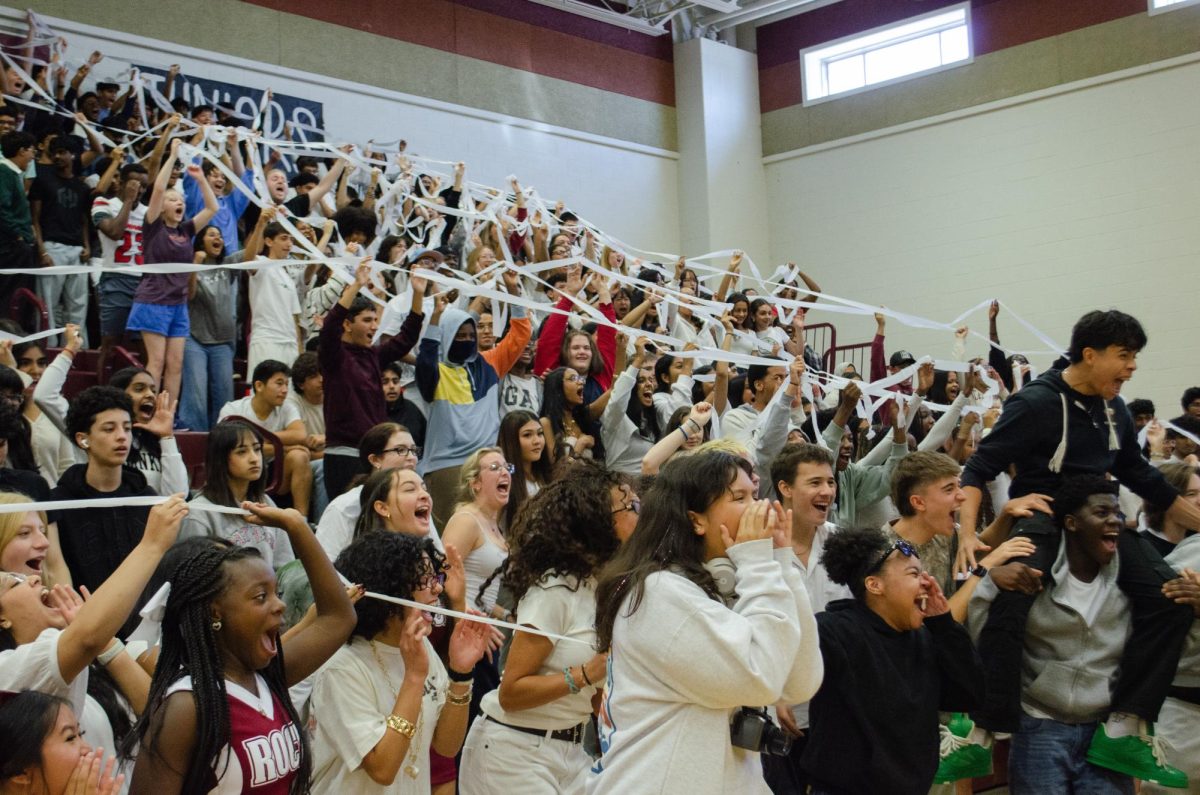
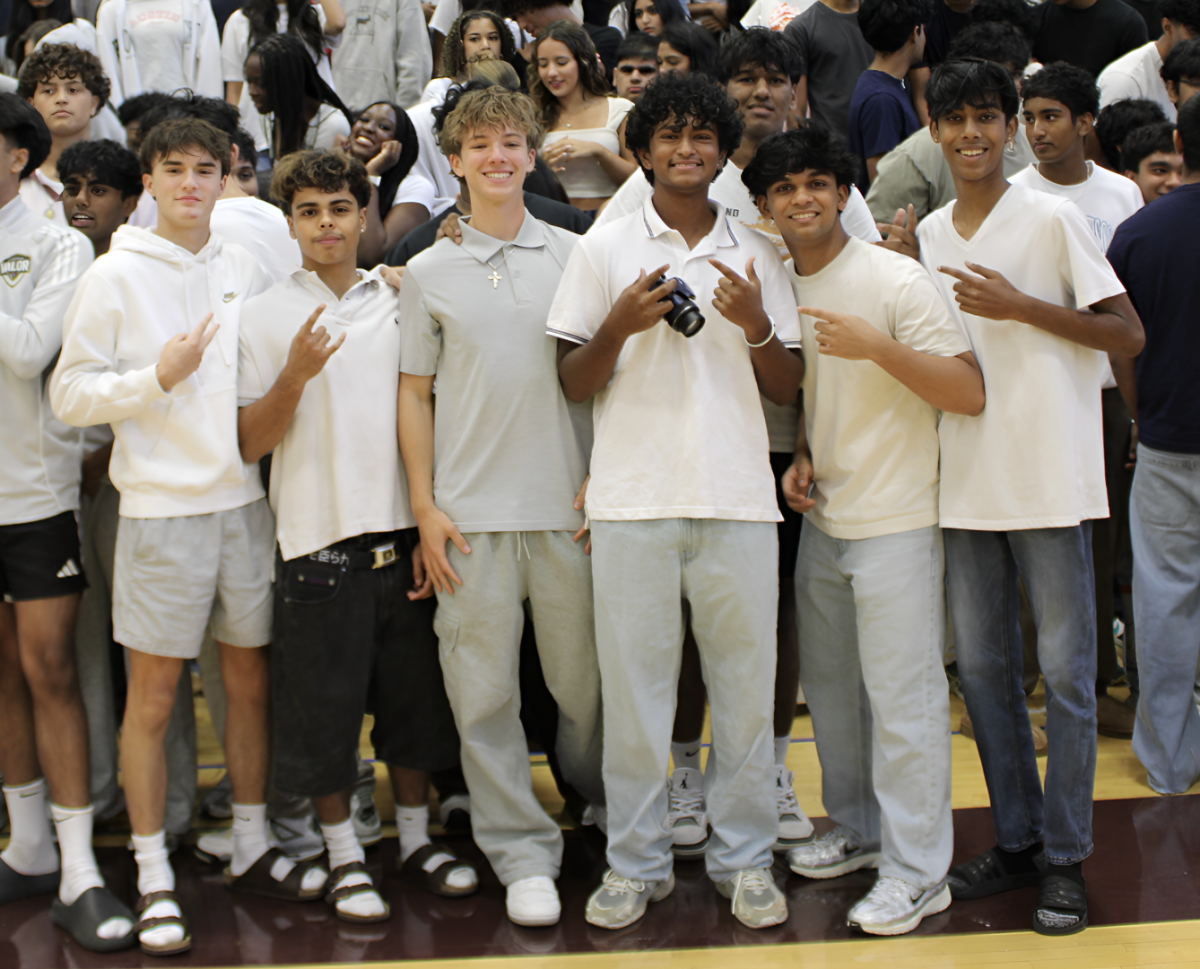













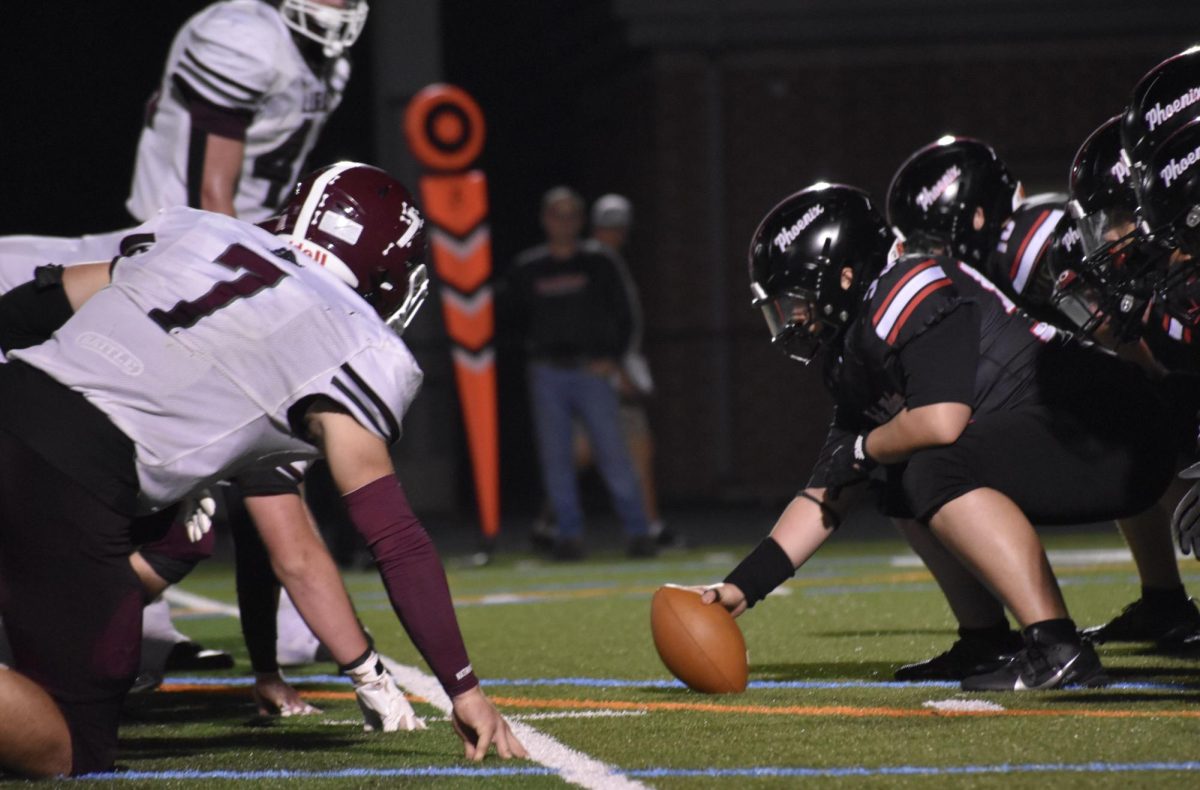





![The Phoenix varsity volleyball team lines up for the national anthem. “We were more communicative [with each other] during this game, and I feel like we kept our energy up, especially after the first set,” senior Jessica Valdov said.](https://theblazerrhs.com/wp-content/uploads/2024/10/DSC_0202-1200x800.jpg)










![Junior Alex Alkhal pitches the ball. “[I] just let it go and keep practicing so we can focus on our goal for the next game to get better as a team,” Alkhal said.](https://theblazerrhs.com/wp-content/uploads/2025/05/DSC_0013-1-1200x929.jpg)






